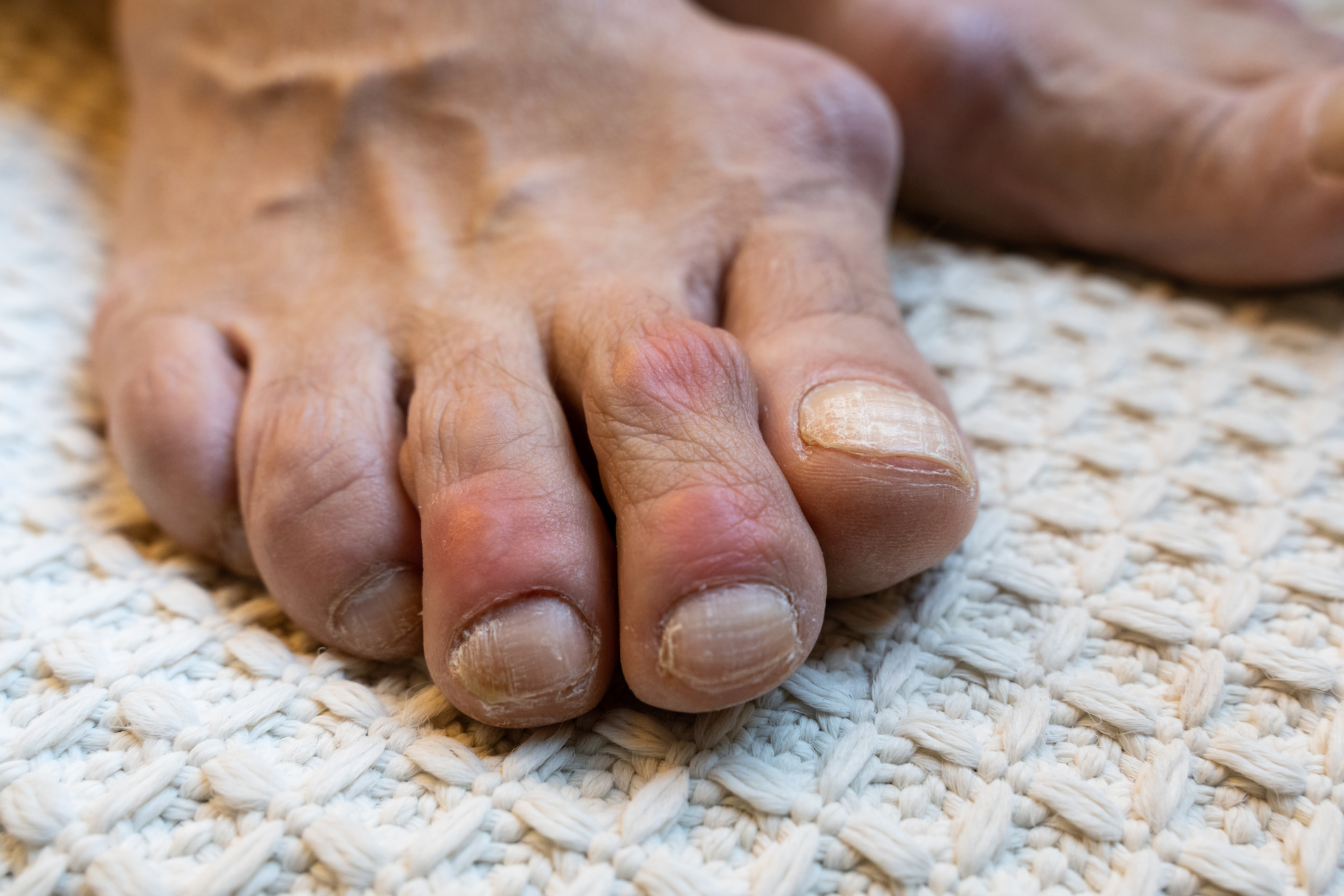
Gout is a type of arthritis that is caused by the buildup of uric acid crystals in the joints, leading to inflammation and severe pain. While there is no cure for gout, there are several strategies that can help prevent gout attacks and manage the condition. Here are some preventive measures commonly recommended:
- Diet adjustments: Avoid or limit foods that are high in purines, as they can increase uric acid levels. Purine-rich foods include organ meats (such as liver and kidney), certain types of seafood (like anchovies and sardines), red meat, and alcohol (especially beer). Instead, focus on consuming a balanced diet consisting of whole grains, low-fat dairy products, fruits, and vegetables.
- Hydration: Drink an adequate amount of water and other fluids throughout the day to help flush out uric acid from the body. Aim for at least 8-10 cups (64-80 ounces) of water per day.
- Limit alcohol consumption: Alcohol can interfere with the elimination of uric acid from the body, leading to higher levels and an increased risk of gout attacks. It’s best to avoid or minimize alcohol consumption, particularly beer and liquor.
- Maintain a healthy weight: Obesity and excess body weight are associated with higher uric acid levels and an increased risk of gout. Strive to maintain a healthy weight through a combination of regular physical activity and a balanced diet.
- Medications: Your healthcare provider may prescribe medications to help manage and prevent gout attacks. These medications may include urate-lowering drugs, such as allopurinol or febuxostat, which reduce uric acid production, or medications that increase uric acid elimination, like probenecid.
- Avoid dehydration and fasting: Dehydration and prolonged fasting can increase the concentration of uric acid in the body and potentially trigger gout attacks. It’s important to stay adequately hydrated and avoid prolonged periods without eating.
- Regular exercise: Engaging in regular physical activity can help maintain a healthy weight, improve overall joint health, and reduce the risk of gout attacks. Low-impact exercises like walking, swimming, and cycling are often recommended.
- Monitor other health conditions: Certain medical conditions, such as high blood pressure, diabetes, and kidney disease, can increase the risk of developing gout. It’s important to manage these conditions effectively with the help of healthcare professionals.
It’s crucial to consult with a healthcare provider for an accurate diagnosis and personalized advice on preventing and managing gout. They can assess your specific situation and provide guidance tailored to your needs.
See More on Video

The End Of GOUT Program™ By Shelly Manning The program, End of Gout, provides a diet set up to handle your gout. It is a therapy regimen for gout sufferers. It incorporates the most efficient techniques and approaches to be implemented in your daily life to heal and control gout through the source.